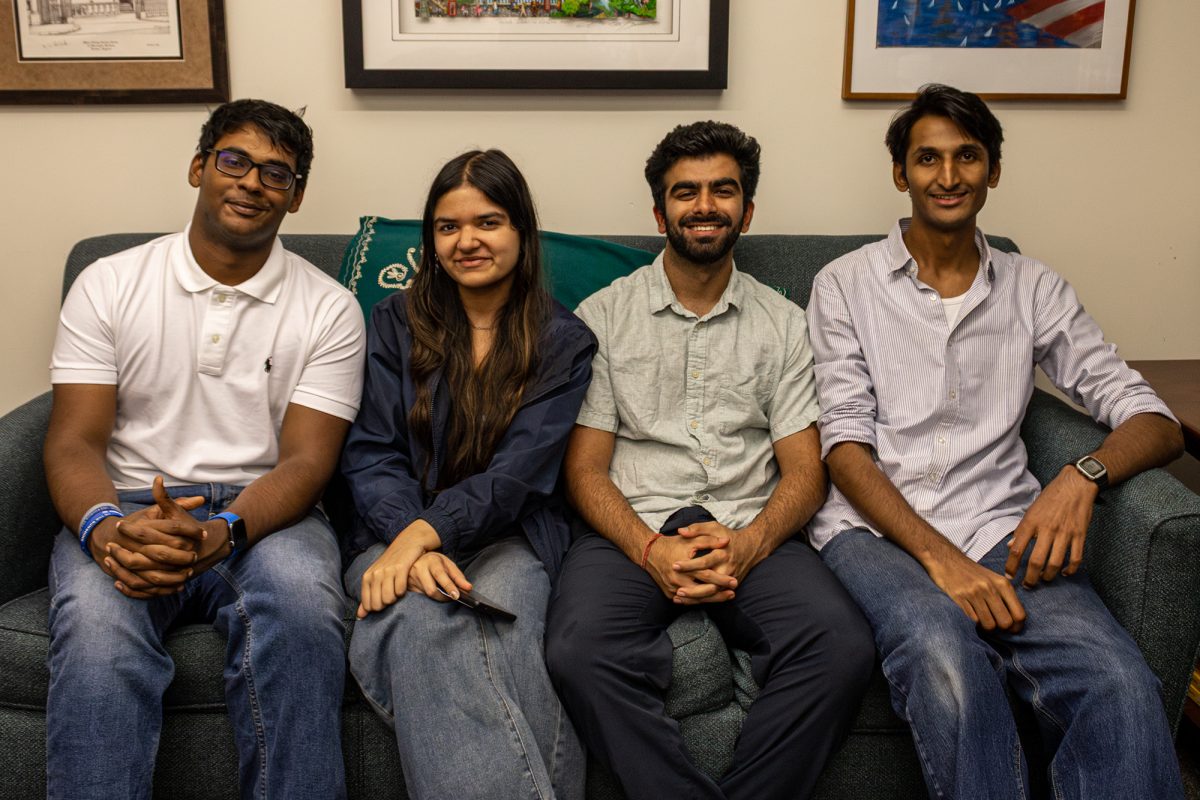With 12 BIPOC–oriented organizations on the Ithaca College campus to serve a population of 1,260 students of color, IC students are finding community beyond campus. From attending parties like the Cornell Black Student Union Cookout to joining Latino-based sororities and fraternities like Lambda Upsilon Lambda and Lambda Pi Chi, students from Ithaca College have been finding affinity spaces in and among the Cornell community.
BIPOC organizations on IC’s campus are being invited to collaborate with Cornell clubs and multicultural Greek-letter organizations. Starting from around the end of the pandemic, many multicultural groups on the IC’s campus began reforming and the number of these groups has only grown.
Junior Martina Brinkley Flores is the secretary for IC Poder, IC’s Latinx Student Association; the social media manager for IC’s chapter of the Association of Latino Professionals For America (ALFPA); and the social media manager for the newly founded IC Latin Ensemble. She said she came to Ithaca having already researched all the Latino organizations on campus and was looking to find a Latino community after feeling isolated throughout high school.
“It’s just really scary times,” Brinkley Flores said. “Having that aspect of community and feeling safe, it’s really meaningful to me, because all my friends, we all have the same fears, and being able to find that comfort that you’re not alone is really important, especially in the world we’re living in right now.”
Cornell University is holding discussions to cut funding to ALANA Intercultural Board by 30%. ALANA is an umbrella organization that provides the budgets for clubs like the BSU, Cornell Asian Pacific Student Union and the multicultural fraternities and sororities. These funding cuts would limit the operations of groups that have made an impact not only on Cornell students, but also the experiences of the Ithaca students who engage with them.
Cornell organizations have been inviting IC groups for collaboration, and this year, new connections between groups have manifested in cross-campus events. The Ithaca College Musicians of Color Association (IC MOCA) held “Migration of Music” on Sept. 22, an event with the Iota Chapter of Sigma Lambda Upsilon from Cornell, which was also attended by some Cornell fraternity brothers.
Senior Jazmen Robinson and sophomore Heather Cruz are members of the executive board for IC MOCA and helped run the collaboration. Robinson is the co-president of MOCA, as well as the vice president of Amani Gospel singers. Cruz, the social media manager for IC MOCA, was the first to see the invitation.
“The event was about the migration of music in POC communities in the U.S.,” Cruz said. “And [the Iota sisters] just thought it would be a really good fit to collaborate with the Musicians of Color Association, since we’re a music-based org, and especially because they’re … a Latina-based org. I think that’s a big reason as to why they thought we would be the best course of action.”
Robinson said that the event was a great way to give representation to different cultures in a way that the music classes at IC do not offer.
“We didn’t have the big outcome, but we all found each other having a deep conversation about where … our music roots come from,’” Robinson said. “‘Was it like your grandmother in the kitchen or your mother cleaning up in the morning on Sundays?’ Those key memories mattered.”
Outside of the e-board of IC organizations, students have discovered information about Cornell’s organizations through word of mouth.
“I met people from Cornell and they would invite me to their clubs, or they will do activities for Dia de los Muertos,” Brinkley Flores said. “As soon as you meet someone from Cornell [who] is Latino, they’re all really willing to find that bridge between Ithaca College and Cornell.”
Junior Marian Sanchez is also a member of IC ALPFA and part of Lambda Pi Chi at Cornell. After a lonely first year at Ithaca College, adjusting to her new environment after growing up surrounded by Latino-American culture, Sanchez said she was pointed to various Latino organizations by a friend.
“For me, one of the events that caught my attention was something in my culture, Dia de los Muertos,” Sanchez said. “They had an event [at Cornell] … and they had homemade bread … something that you can’t find here in Ithaca. So I think a lot of people are searching for that because … you can’t really find a lot of things from your culture [in Ithaca]. There’s no Mexican store. So for me, a lot of these events that Cornell [was] advertising, I really felt the need to go.”
As of 2023, 63% of the student population of Ithaca is White and 71.8% of the student population of IC is White, compared to the percentage of White residents of all of New York state, which is less than 36%. Robinson, Sanchez and Brinkley Flores all described how students of color come to IC and face a disarming distance from the cultures they grew up in.
“[Cornell students] know Ithaca College is pretty small,” Brinkley Flores said. “Even though Cornell is still a PWI, they still have a higher Latina population there, and they have so many clubs like South Americans, Central Americans, like every aspect of Latina life, and they know we don’t really have that here. So I feel like a lot of them feel some compassion, and they invite us to their events as well.”
Students do not have to go to Cornell to participate in these events. IC student organizations have hosted their own events, which Cornell students have attended, or Cornell students have come to IC themselves to connect.
“ALPFA and Sabor Latino [Dance Ensemble] had a workshop together at Ithaca College,” Brinkley Flores said. “It was in Dillingham, and that’s how I got to audition for Sabor, because they had a workshop for IC students, and I went with my friends, and I brought all my friends, since it was really fun.”
Robinson said that the IC and Cornell collaborations create networks for students, professionally and intellectually. It creates spaces for debates and exchanges of experience among students.
“[IC is] a smaller school, but it also has different perks to it,” Robinson said. “I think it’s a very loving, very kind, very welcoming community. … For all those people of color to all come together in Ithaca and not just be so separated, I think that matters. And we also get a side of what their life is like on the other side of the hill.”















